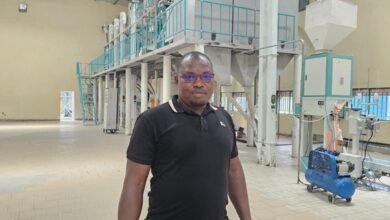Economy Interview Taieb Talbi « Change, evolve or perish, this is the choice that is offered by History to Tunisia »
Through this interview, Taieb Talbi, a specialist in sovereign debt management in emerging countries, who advises several states and multinationals on investment, asset management and debt relief, gives an uncompromising flashback on the recent developments in Tunisia. Extracts.
How do you see Tunisia over the past ten years?
My perspective on the past ten years remains more or less the same as the one I described in my book “La grande désillusion”, published in 2015.
The disappointment is at the height of the hopes generated by the movements of the Arab Spring. A disappointment that is not a despair. A lot of things have changed or evolved. Over the past ten years, the field of possibilities has opened up to Tunisians who can finally breathe new freedom. A democratic wind gave voice to society as a whole for a while.
All the paradigms of a tyranny, sometimes bloody, have been shattered. In Tunisia, the point of no return seems to have been crossed and we can move forward without fearing, hopefully, the recall of political authoritarianism such as that which has stifled the country for decades.
Social and cultural representations have profoundly changed in the collective mind. Only political torpor, if it persisted, could constitute a brake on this emergence.
There is no such thing as magic in politics and society. So, it must be said that this revolution, about which one speaks so much, is far from being completed. Tunisian history has paused and seems to be waiting for a new path to open towards real reform.
Unlike the majority of the countries conquered by the Spring, Tunisia should manage to keep the book of debates open and know how to free itself from its historical oppositions between secularists and religious, military and civilians, politicians and civil society, moderates and Islamists.
There is still significant reform work to be carried out in the social, political and institutional organization of the country so that the conditions for renewal are finally met. The country is slowed down by 10 years of compromise between public actors for the exercise of responsibilities. The dilution of decision-making and influence capacities between the central power, the local authorities and the social forces considerably hinders the rapid evolution of society.
It is certain that the face of the Arab world has been changed. The Palestinian question is no longer at the center of the debate. New avenues of dialogue have been opened between the Saudis, the Qatari, the Israelis and even the Iraqis. The regimes have changed, the autocracies have fallen, but, like Tunisia, the reform projects are at a standstill and if Tunisia still has to change the face of the Arab world, it must go so far. ‘at the end of its refoundation process.
We must look further in order to understand how these ten years have profoundly changed the geopolitics of the Arab world in which this sacrosanct Palestinian question is no longer the political totem that it once was.
In reality, Arab political and diplomatic lines have moved towards Israel, thus causing a substantial change in the stakes in the sub-region through a form of union against Iran on the one hand and a common opposition against the Shiite axis throughout the Arab world on the other hand.
This almost unnatural alliance could generate new sources of conflict that could erupt in late 2021, upon completion of the normalization process.
Tunisia, for its part, may have shown the way by overcoming the two major crises that constituted the ideological Shiism born in 2013 between political Islamism and civil society on the one hand and the security crisis caused by the wave of jihadists having, in particular spawned the bloody attacks of 2015, on the other hand.
What do you think remains significant?
But, like the seed that germinates and has not yet launched its business into the light, society is fundamentally changing. One of the most significant advances is characterized by the unprecedented evolution of the place and role of women in the Tunisian universe. The evolution in terms of rights, the involvement of women in the life of society, in entrepreneurship and the place taken by them in administration and political life, constitute a profound change which should transform, in a short time. time, the fundamental values of a Tunisian society by transforming it on the ruins of its past archaisms.
Let us not forget that it was by the vote of more than a million women that, in the last presidential election, the country did not have to undergo the exercise of power by forces of political Islam.
While the legal issue has yet to be resolved, the reform of the inheritance statute for the benefit of women has been brought to the stage of constitutional debate. This question has always been the domain of religious dogma, it is now transferred to the level of civil law.
So, would the woman be the future of the Printemps?
In the past ten years, the men, who took over the conduct of business from 2011, have not been able to face, in their reality, the fundamental causes of Printemps and propose the projects and reforms essential to remedy the deep social and territorial divide that has sclerotic Tunisian society for several decades.
Is it only for lack of courage or because of a bad analysis that these new leaders, mired in alliances and coalitions, have not been able to shatter a plutocratic system, maintained by a few large families, in whose hands concentrate the wealth of the country?
Despite everything, this country has entered a political reconstruction guaranteed, hopefully, by an electoral system that we can expect will be increasingly stable. It’s already a revolution in itself.
From the start of the Tunisian Spring, we have witnessed the abundant birth of new media, but also of political parties.
But, and we do not say it enough, civil society swarms from the start of the Tunisian Spring. It fulfills a major role with increasingly fragile populations.
During the last ten years, natural evolution has channeled the energies of these initiatives and the most fragile have disappeared or have joined forces.
Nevertheless, from this eruption of commitment and communication, there remains a diversity and a potential conducive to the construction of a democracy which is capable of flourishing in the emergence of new ideas, around a healthy adversarial debate.
A democratic organization « Tunisian » is emerging, very slowly, in small steps. The movement seems solid and irreversible even if the defects of the past tend to bud. We must see here a guarantee of stability that could never have been offered by a junk democracy that some would have liked the Arab countries to import without batting an eyelid.
Despite everything, for ten years, the Tunisian political world has not dared to go to the end of the process by making frank choices based on a clear and operational guideline. Is it for lack of experience and training that the new political generation remains reluctant and clumsy?
We can think so and the observation is verified every day. In contrast to the ideals of the Spring Revolution, the country has known only a sad series of weak, ephemeral coalitions without strong institutional tools. Fortunately, this weakness of political action did not result in a violent reaction or a popular revolt that could have been dramatic.
Other countries would easily have raised the issue of arms and turned into a street conflict. The Tunisians are not from this school and have kept their cool. The debate and the dialogue continued, even if it sometimes seemed to be a dialogue of the deaf.
The impediment of any real economic development, due to the lack of reliable leaders at the helm, has, alas, continued. Thus, despite hope, despite some reforms, the country continued a free fall towards ever more unemployment and precariousness.
However, we can be sure that our country has chosen, by instinct, the most difficult, but the most solid path. Tunisians have collectively chosen to be themselves, doing work on themselves that requires a lot of introspection. This could explain the slowness that we deplore, but the foundations will be solid for men, both wise and daring, who will build the new Tunisia.
This is the only meaning to give to this spectacular capacity for resilience of Tunisia and its population. For how long, if the political and economic reconstruction does not take a real start?
Ten years of illusions have led to the current social and psychological distress of a Tunisian people, whose confidence and enthusiasm have disappeared under the effect of an artificial intellectualization of the post-Spring period, by a few politicians who failed to grasp the extent to which certain interest groups, lobbyists and big fortunes have acted, for their own benefit in a confiscatory manner against popular ideals.
Foreign interference, constant since the early days of the Tunisian spring, will also have been a powerful brake on the development of reforms. Too many international partners do not want a country like Tunisia to take off in reform.
It is only time to finally begin the reconstruction of Tunisian society before new wounds further undermine confidence in the future and obscure the landscape for a long time. Without reformist democratic and political action in the foundations of an asphyxiated institutional system, as we experience it today, the counter-revolutionary response could come soon. It would then engage the country in the limbo of arbitrariness and, dare we say it, a form of terror maintained by the darkest ambitions of radical movements which act discreetly with the poorest among our fellow citizens who are despair, chaos and disillusions have weakened.
To this, let us add that we must deplore, on a daily basis, the very negative trends that have appeared in this period of ten years after the Spring uprisings, in particular a serious and worrying increase in crime in all its aspects. Banditry, crime, rape and corruption are real problems due to the wrong mix between the absence of the state, weak national security, collective and individual fears, poverty and, last but not least, hunger. Added to this is the endemic organization of a parallel and informal economy, the circulation of dirty money, laundering …
This situation is the direct result of a catastrophic economic situation.
From an economic point of view, what observation have you made?
The principles of reality always catch up with us. Thus, we must note that the Tunisian economy is currently at half mast.
The purely intellectual vision of those in power has led to the fundamentals of public action being forgotten. The debate on long-term plans, on economic guidelines and on territorial reform, was ignored. We preferred elements of language, or short-term projects with no vision for the future.
Meanwhile, unemployment has crossed the threshold of 15% on average and reached 30% in the region of Medenine, for example. No need to talk about purchasing power again when you can no longer buy anything, even the most essential goods.
The national debt has more than doubled, oscillating, during the last ten years between 87% and 90% of the GDP. The country’s borrowing base is now only $ 250 million accessible at rates close to usury. Ten years ago, we were talking about prosperity, yet the debt ratio was close to 50% of GDP. But the borrowing capacity was considerably more open.
Debt is the dark cloud that hovers over Tunisia. It blocks all ability to maneuver and is divided between the infamous debts resulting from decolonization, the dubious debts incurred by previous regimes and the debts that should be converted. The site is colossal.
The cost of living has become very expensive today and inflation is high. We can say that the price of the Dinar has unscrewed. The main concern of Tunisians is to be able to ensure daily life.
We could still look at the situation of education, health and public hospital, the bleeding of high-level skills or brain drain, for lack of prospects in our country.
More worryingly, more and more young people are choosing to flee their condition and set out to reach the now infamous island of Lampedusa, if they are lucky enough not to perish along the way.
In this context, traditional national and international investors are absent and, instead, we are witnessing the emergence of new opportunistic investors, profiteers from the crisis, whose capital often turns out to be opaque.
Economic nature abhors a vacuum, these bad investors occupy the place that the initiative of the state does not occupy. A form of parallel economy is then set up which is organized around the growing misery of the populations.
Is Tunisia too busy to walk its bowl in the corridors of international institutions to solicit credit and charity, to the aid of current affairs, when the solution is internal?
Why do we still have to humiliate ourselves to ask millions or billions of the IMF, which is claiming joint and several guarantees from one or more countries, in order to consider the financial demands of a country whose economy is at bay according to its criteria?
The priority now is to ask the right questions in order to implement the right solutions. We must accept the principle of an inventory and a diagnosis without complacency and take the resolute initiative of a strategy and an action plan, according to a priority based on a return to the fundamentals of the economy. and focus on rebuilding national production capacity in the fundamental areas of industry, agriculture, health, energy and transport.
What about the private sector?
The state, a legacy of history, is still at the helm of economic sectors in finance, food distribution, agricultural and industrial production while it has no proven performance in these areas.
What is the meaning to be given today to state control over the semolina market for banking, air and maritime transport, or the tire market?
We must speak clearly and invite all possible investors, large and small, to focus on the essential and basic needs of the country. The private sector must devote itself to the public good by putting in place a real efficient agricultural sector that responds to domestic needs as a priority.
Tunisia is endowed with a unique know-how that can be expressed in the production of virtuous agricultural products, whose labor needs would be a first response to the demand for so important employment, and especially among young people. .
Organic agriculture, innovation and quality are sectors where added value is clearly beneficial. We see it on the issue of olive oil for which Tunisia is gaining its acclaim.
The private sector should also play on the local ground and think about organizing skills to produce useful in the fields of crafts, tourism, health and services.
But any policy is wishful thinking if it is not backed up by the tools that serve it. It seems to me essential to privatize at least one national bank in order to transform it into an investment bank backed by a citizen and social fund for economic development. It is only time for Tunisia to finally acquire its sovereign wealth fund.
In this sense, we must renounce a centralism which could only burden the chain of decisions. Let us be sure that the work of administrative and political decentralization will only reach its full potential if it is accompanied by economic decentralization.
Water and energy are essential industrial sectors. Private initiative is now essential to develop them at a sustained pace.
It’s a whole new economic model that must now be launched.
I had, in an interview published in the columns of Erem News in 2012, developed this ambition for Tunisia. I spoke at the time of the need for a concentration of national and multilateral economic forces and resources, in favor of a sort of « Marshall Plan ».
I am in despair to admit that I still think so today. But out of this despair, as is the socio-political situation in Tunisia, we need to turn it into an energy, we must believe in the future and give ourselves all the means to build it by offering Tunisia a hub function. economic and logistical, particularly in the direction of Africa and supported by financial instruments and locomotive companies, involved in a strong investment dynamic.
The objective to be set should be considered over a 20-year horizon, through an action plan that is not subject to political and electoral vagaries. I would invite, if I had the possibility, political and economic leaders to convene a group of experts who could, in all objectivity, establish an action plan that is so necessary for the restarting of Tunisia. It will be necessary to make an economic project a project decided and voted by the Parliament which commits public action over time regardless of the government or the legislature.
From then on, the country’s level of confidence would once again become the source of sufficient energy to make the Arab Spring blossom into a real summer.
In an international context in which the economy is collapsing on itself, we should bet that Tunisia bases its economic development on its own identity.
Finally, it is time to pay particular attention to the possibilities that could be offered by intelligent cooperation between the public and the private sector in the field of infrastructure, in particular logistics.
Alms from European countries must no longer be used without control in our country. Aid must focus on projects established over time and not on current opportunities.
Innovation, which is seen as a sort of panacea, can it not give a boost to the development of the country?
Innovation is one of the keys to economic activity provided it is founded.
We cannot base the economic rebuilding of a nation on the interesting concept of the start-up.
We have a duty to be both more pragmatic and ambitious in engaging support for businesses on the path to excellence in the areas of agrifood and production. Prioritize the recovery of the national economy first, and initiate a search for international markets in which we could stand out second.
In these areas, the need for innovation is very important and essential to meet the food and manufactured goods needs of a growing world population.
While it is important to take rank in technological fields, the need is to ensure the quality of life of populations who lack the essentials, before dreaming of « Silicon Valleys » in Tunisia.
Yes, Tunisia’s great technological and digital successes are essential, especially if we direct them towards improving the production of goods, which the country needs to regain confidence and a standard of living that will open our eyes. towards a chosen future.
Now is it the time to strengthen trade with Africa?
It is true that Tunisia is a country on the African continent. From this evidence often arises the idea of a natural tendency to trade with African countries. However, the reality still lies in the face of this assumption.
Tunisia, for nearly a century, has turned its back on Africa and its model of trade has been orbiting around France, Europe and the United States.
African countries have been, in a more cruel way, pointed in the same direction. Thus, History has played Africa against Africa and it is very difficult now to find economic pathways that can develop efficient trade models. The political context and the instability of many countries certainly contribute to the marginalization of economic exchanges between North Africa and the rest of the continent.
Trade is also born out of political cooperation. However, it should be noted that, for several years, all African international institutions have no longer had any representation or headquarters in Tunis. This is, for example, the case of the African Development Bank. University exchanges no longer exist, there is no line or airline focused on African countries.
In this case, economic cooperation with Africa could only materialize through an agreement negotiated and supported by an international and pan-African structure.
It would already be useful and urgent to concern ourselves with the development of an economic market at the level of the Arab countries themselves. Unfortunately, we are not even at the dawn of the birth of such a project.
How do you see the future of the country?
Tunisia did not sink into chaos or war, it did not sink into the excesses of religious power, it allowed unprecedented freedom of expression to flourish, it opened up the field of possibilities. to women, she organized free presidential elections, established a new constitution and kept the door open for reform. So we can always speak of a Tunisian exception even if I wish, deep down inside me, that we could one day speak of the Tunisian example. But this victory over bad luck is fragile.
Little by little, we are witnessing the emergence of a politico-nostalgic feeling for the old regime. People are sometimes tempted to think and say that in the old days, at least, we ate every day, that we did not hope for anything, but that we did not sink into deep despair as we do today.
If we have no other choice than to believe in a radiant future for Tunisia, it is however on the condition that we converge the efforts of all the country’s forces in the direction of institutional, economic and political reform. and social. Dialogue, convergence of goals and wisdom are the keys to this national future. Thus, the hopes will not have been in vain because we will have known how to transform them into creative energy. In this sense, I hope that every citizen of this country is not proud to be Tunisian, but much more, happy to be.
It will be necessary to put an end to the blackmail and demands of professional and political organizations, ready to block an entire country in order to obtain what the state can no longer give and yet promised by a political power, propelled out of reality. If wealth is to be created and shared, it cannot be invented.
At a time when so many countries are closing in on them, convinced of a dark future, I know that Tunisia is in the process of building the roads of its future itself and that we must help it, each in its own way, to regain self-confidence, to work day after day to realize the hopes born of Spring. Now, it is the duty of all progressive Tunisian forces to work together to establish a method, determine realistic objectives and put in place the political, institutional and economic tools to serve a renewal capable of satisfying the hopes born of the Spring. Change, evolve or perish, this is the choice that is offered by History to Tunisia, but is it not the primordial rule? It is a beautiful project and it is within reach, you just have to believe in it, and that doubts, questions, efforts are the best tools to realize the promises of the future that I see every day in the hearts of Tunisians. It’s just a small side step to dare, but it takes a lot of work and it’s just time to make it happen.






